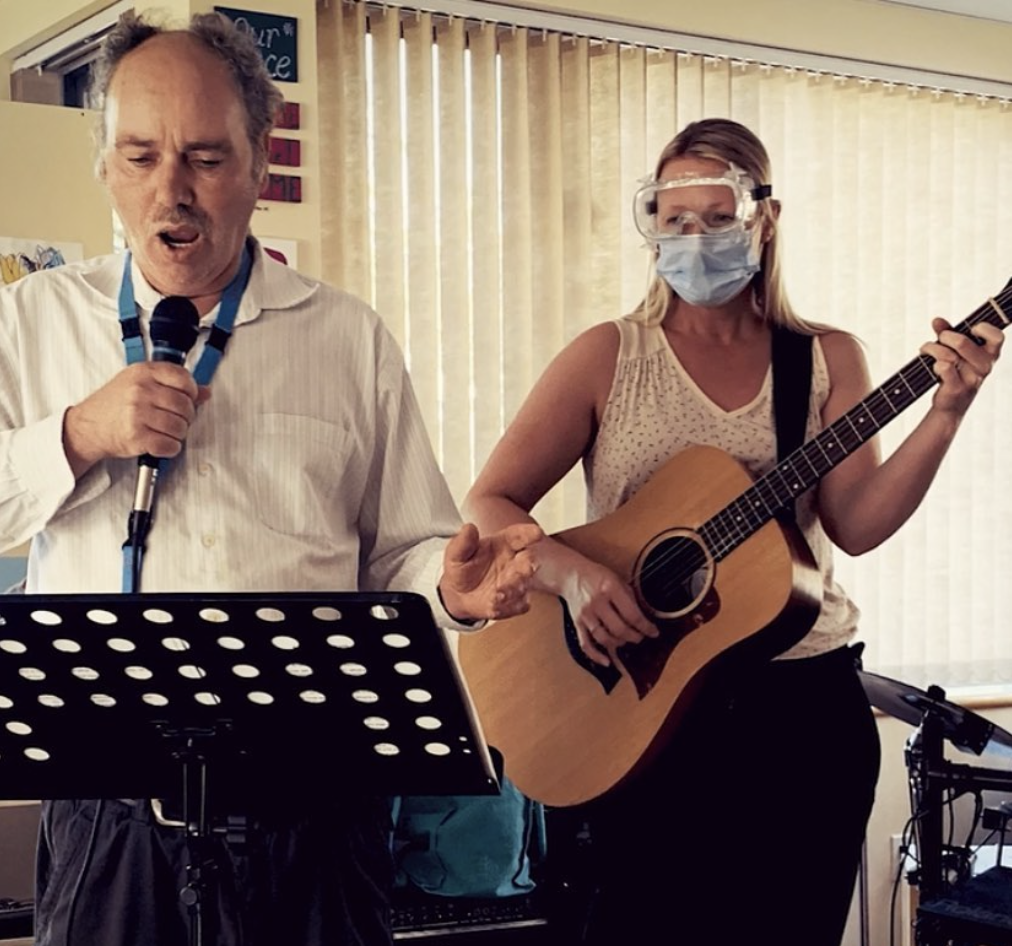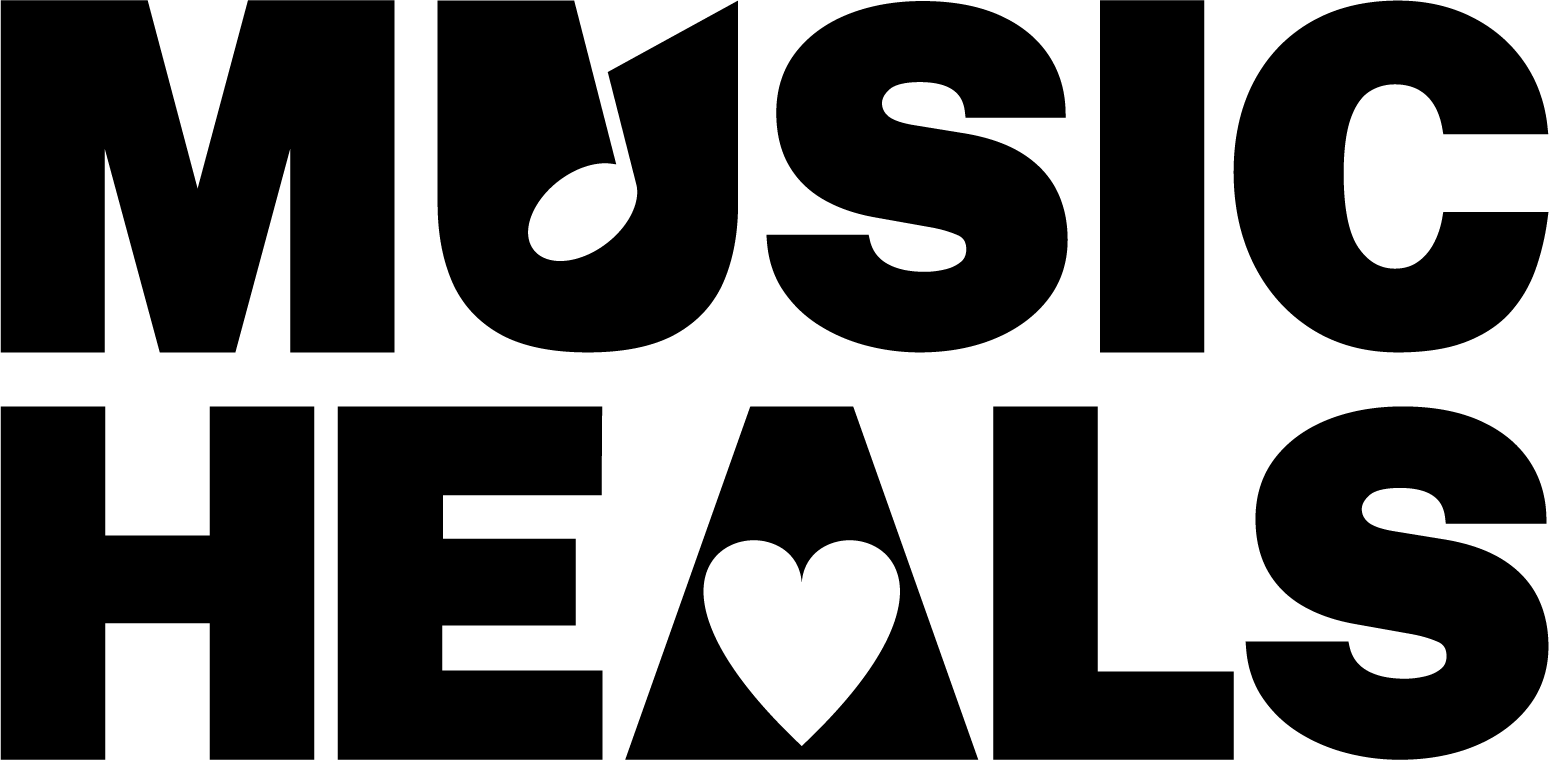Music Heals Teams Up with SFU Researchers on Mental Health Study to Investigate COVID impacts on Health Care Workers
March 1, 2021

Surrey, B.C. (March 1, 2021) – In recognition of Music Therapy Awareness month (March) and Brain Awareness Week (March 15-21), Music Heals is launching a virtual pilot study in partnership with Simon Fraser University (SFU) researchers to investigate the mental health impacts of the COVID-19 pandemic on health care workers.
Led by SFU neuroscientist Dr. Ryan D’Arcy and the BrainNET team of researchers at the Health and Technology District and SFU, the study will explore whether virtual music therapy can help improve mood and emotional state.
Using standardized neurocognitive tests and electroencephalography (EEG), participants will be evaluated for measures of emotion and be assessed for changes in objective markers of brain function, as a result of participating in music therapy. The approach utilizes key novel technologies being studied at SFU and takes advantage of ongoing research in therapy methods to improve mood and mental health.
Other recent studies have shown that health care workers such as nurses, doctors, EMTs and paramedics are at a considerable high risk of developing PTSD, depression, and other general mental health disorders, relative to the general public, as a result of being directly and routinely exposed to high stress, life-threatening and potentially traumatic health care situations.
The COVID-19 pandemic has exacerbated this risk. Health care providers are particularly vulnerable to mental health stress during the pandemic given their exposure to the virus, concern around potentially transmitting the virus to their loved ones, and increased work hours.
“It is imperative to care for the morale and mental health of our health care workers to maintain the viability of our health care system especially during the pandemic, and we need to investigate mechanisms to offer psychosocial support to these important populations,” says Dr. Shaun Fickling, a biomedical engineer, a recent SFU PhD graduate and coordinator of the study.
“There has been scientific evidence that shows there are benefits of music therapy on mental health, and it’s worth further exploring how it can help improve brain function and the mental health of health care workers during COVID-19.”
Research has shown that music therapy can help people with depression and anxiety. While music therapy is often used to promote mental and emotional health, it may also improve the quality of life for people with physical health problems.[i]
Music therapy interventions involve the use of live music (performed or created by the therapist and/or patient), and a process that includes patient-specific assessment, treatment, and evaluation. It also includes active participation in playing music instruments. Since musical elements such as pitch, rhythm, and melody are processed in different parts of the brain, playing music activates the whole brain. Using both hands to play music can also stimulate inter-hemispheric coordination of motor areas.
“Music therapy has been shown to be effective when used therapeutically for people who have physical, emotional, social, cognitive or mental health deficits,” says Taryn Stephenson, Director of Brand Partnerships and Sponsorship at Music Heals.
“With COVID-19 being such a huge burden on society, particularly with health care workers, we hope that by studying how music therapy can impact brain function, we can provide additional scientific evidence to prove the efficacy of music therapy on mental health.”
A total of 20 adult health care workers will be recruited with the assistance of the Fraser Health clinical research team from Surrey Memorial Hospital.
The project will also involve a number of collaborators, such as Dr. Xiaowei Song, Fraser Health’s first Senior Clinical Research Scientist, who has expertise in brain imaging, and computational health informatics, data mining technologies, and machine learning.
“Capturing the experiences of front-line workers through clinical research and translating the findings has the potential to improve patient care in the future,” says Dr. Song.
The music therapy pilot study group will complete a four-week virtual music therapy session, facilitated by a certified music therapist accredited by the Canadian Association of Music Therapists. Portable EEG recordings will be collected using a commercially available, portable EEG system (Muse, InterAxon).
Music Heals is the sponsor of this study, with research funding provided by the Canadian Mathematics of Information Technology and Complex Systems (MITACS).
About Music Heals
Music Heals Charitable Foundation supports a wide range of music therapy services to communities in BC and across Canada. We increase access to music therapy for patients in children’s hospitals, senior’s centres, palliative care, AIDS & HIV programs, at-risk youth, habilitation, and bereavement support. Music Heals is a not-for-profit society incorporated in British Columbia and is registered with Canada Revenue Agency as a charitable foundation. www.musicheals.ca
About Fraser Health
Fraser Health is responsible for the delivery of hospital and community-based health services to over 1.8 million people in 20 diverse communities from Burnaby to Fraser Canyon on the traditional territories of the Coast Salish peoples. Our team of nearly 40,000 staff, medical staff and volunteers is dedicated to serving our patients, families and communities to deliver on our vision: Better health, best in health care. www.fraserhealth.ca
About Simon Fraser University (SFU)
As Canada’s engaged university, SFU works with communities, organizations and partners to create, share and embrace knowledge that improves life and generates real change. We deliver a world-class education with lifelong value that shapes change-makers, visionaries and problem-solvers. We connect research and innovation to entrepreneurship and industry to deliver sustainable, relevant solutions to today’s problems. With campuses in British Columbia’s three largest cities—Vancouver, Burnaby and Surrey—SFU has eight faculties that deliver 193 undergraduate degree programs and 127 graduate degree programs to more than 37,000 students. The university now boasts more than 165,000 alumni residing in 143 countries. www.sfu.ca
About the Health and Technology District (the DISTRICT)
The Health and Technology District in Surrey, B.C., is a rapidly expanding ecosystem of innovators and entrepreneurs collaborating with tech companies, scientists, educators and health professionals; each representing a range of business, technologies and research fields. The series of high-tech buildings located and under expansion strategically across from Surrey Memorial Hospital, offers a dynamic community where disruptive impacts are generated through the translation of research, science and technology into global innovations. BrainNET is an initiative emerging from the District for researchers focused on brain health. www.HealthandTechnologyDistrict.com




